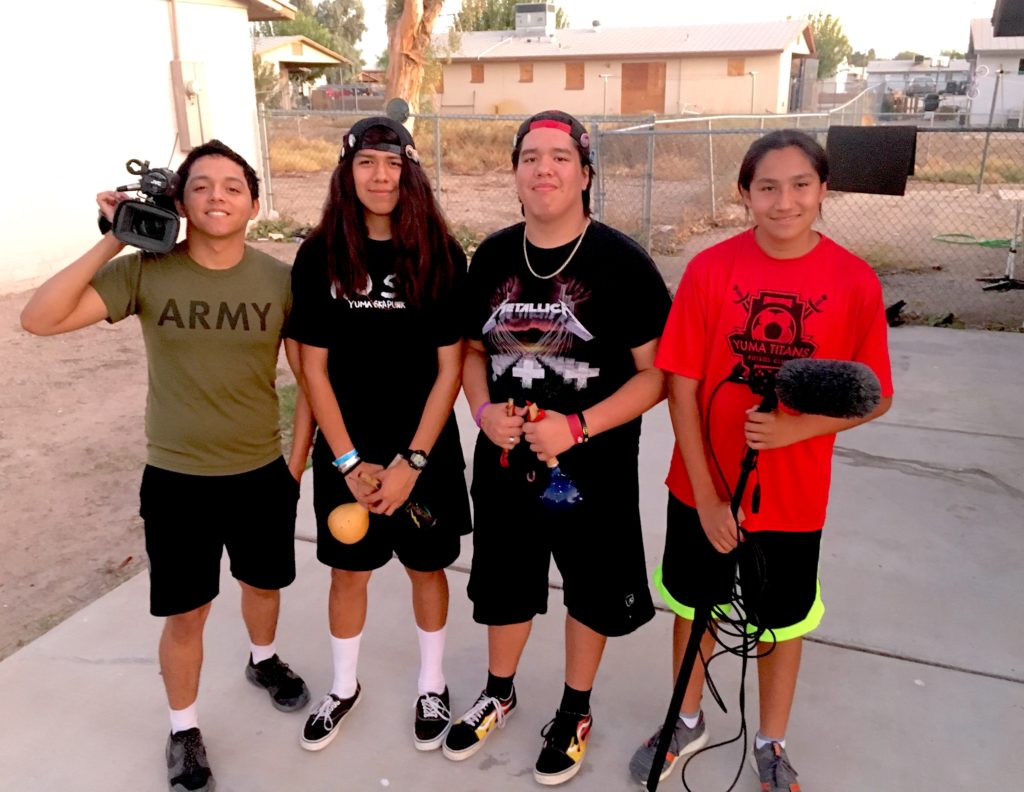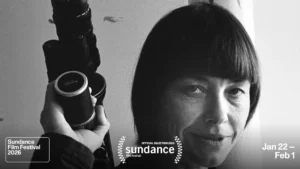“Today, storytelling is more important than ever, whether the story be told through film or writing. As Native Americans, we are often left out of the larger dialogue about race and discrimination. Storytelling through film is an excellent way for us to be included in this dialogue.” — Daniel Golding, Producer
As part of the CA 2020: Youth Perspective and the Future of California initiative, California Humanities commissioned a series of short films that explore young Californians’ experiences throughout the state. The documentaries, produced as a collaboration between experienced media makers and young storytellers, offer first-hand insight into California youth’s lives and underscore their role in shaping society’s future.
Over the next year, we will highlight films from the series, starting with an interview about AWAKEN, directed by Nathaniel Golding, 14, and Xavier Madrid, 19, and produced by Daniel Golding from the Fort Yuma Reservation in Southern California. AWAKEN premieres at the American Indian Film Festival on November 6 and is available for viewing online through November 14. For more information, please visit the American Indian Film Festival website.
Daniel Golding, Producer:
AWAKEN looks at the issues and challenges young people face growing up on the Quechan Nation’s Fort Yuma Reservation in Southern California. The film tells the story of cousins Orlando Jefferson and Kieran Palone, whose love for metal music has not deterred them from learning their Native American traditional songs and dances. Like most teenagers, these kids also have other interests. Ultimately, the film asks how do they see the Quechan culture fitting into their lives and as part of their future?
The Quechan Nation is one of the largest tribes in California, but few know of its existence because of its isolated location. Also, because of our isolated location, we are still culturally strong. We have approximately 60 fluent speakers of the Quechan language, which is a high number for a California tribe. But this number is also rapidly shrinking as many of the elder speakers are dying.
Living on the Fort Yuma Reservation in Southern California isn’t easy. Many of the Quechan youth today aren’t picking up the language or traditions. Enthusiastically independent, Orlando and Kieran choose music as their medicine to keep them from falling victim to the destructive pitfalls of reservation social problems. Their story serves as an example, showing today’s Native American youth’s strength to proudly live life with one foot in both worlds.
Why is it important for stories like Orlando’s and Kieran’s to be told?
I think this story is important because it highlights the complexities of Native American youth today. Young people are faced with many challenges. Not only the pressures of just being a teenager, but the responsibility to carry on the traditional beliefs. These young men take pride in being able to do both. Further, it gives insight into real everyday life on the reservation without stereotyping.
You have a long track record as a filmmaker, but what are your thoughts about providing mentorship and guidance to the next generation of storytellers?
Today storytelling is more important than ever, whether the story be told through film or writing. As Native Americans, we are often left out of the larger dialogue about race and discrimination. Storytelling through film is an excellent way for us to be included in this dialogue. Young people need to understand how film, documentary, and narrative can be used not only to strengthen our community but be shared with the larger public to help them better understand our challenges and place in this world. I feel a responsibility to invest my time in helping others learn the craft, and hopefully, they will love it as much as I do.
Anything else you’d like to add?
I’m proud of these young filmmakers. And I’m especially proud of my son Nathaniel. I really enjoy spending time working on a project together. I hope we can do more. They worked hard to complete this project.
I look forward to their next project. A big thanks to California Humanities for their support.
Nathaniel Golding, Xavier Madrid, Co-Directors:
What inspired you to make the film?
Nathaniel: What inspired me was my dad because I wanted to make a film like him.
Xavier: I loved the idea of getting to show whoever wanted to see how Native American youth can do so much more on a reservation.
Did you discover anything new about yourselves or your community in the process of making it?
Nathaniel: I did discover something about myself. I discovered that when I put my mind to anything, I can do some big things.
Xavier: I learned that there’s this community of musicians who earnestly care and have fun with the music they make.
What do you hope audiences will take away from the film?
Nathaniel: What I hope audiences will take from this film is that having a positive outlet to do things like sports or music will lead to positive things.
Xavier: That there’s always something to do, there’s no reason to be stagnant.
AWAKEN is premiering at the American Indian Film Festival in November. How does that feel?
Nathaniel: It feels amazing to see something that I spent hours and days working on to go to a film festival where people will see the film.
Xavier: Being my first film, I’m really excited about the opportunities that may open for me.
Anything else you’d like to add?
Xavier: I hope everyone likes the film.
Support for the Youth Docs series is provided by the California Arts Council, the Panta Rhea Foundation, the Silver Giving Foundation, and the Stuart Foundation. Daniel Golding’s upcoming documentary Chasing Voices: The Story of John P. Harrington was supported by California Humanities through a California Documentary Project grant.





